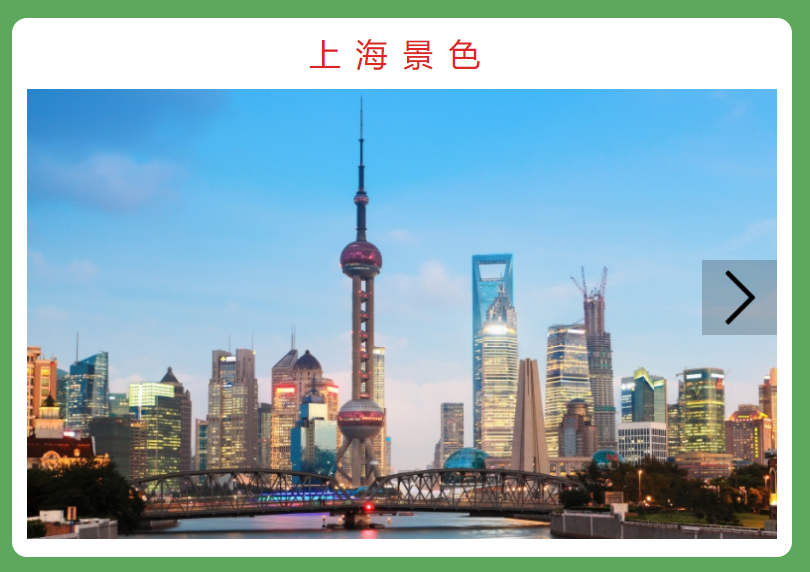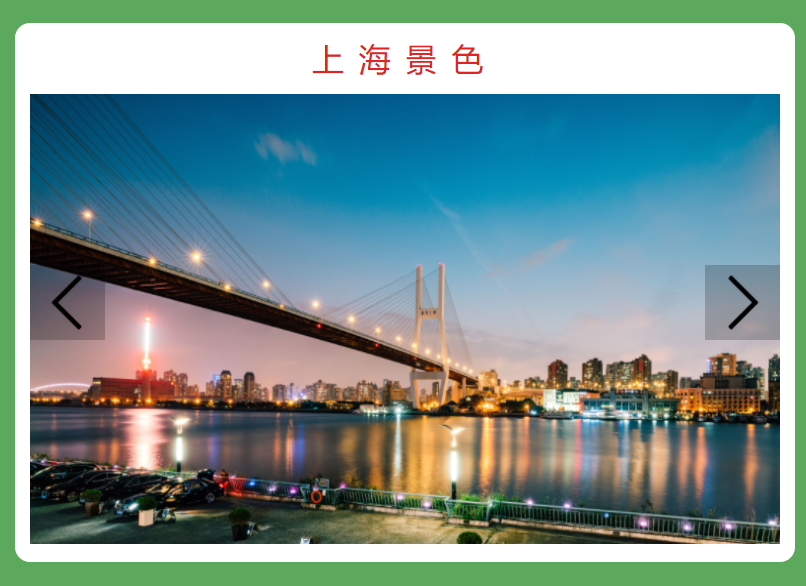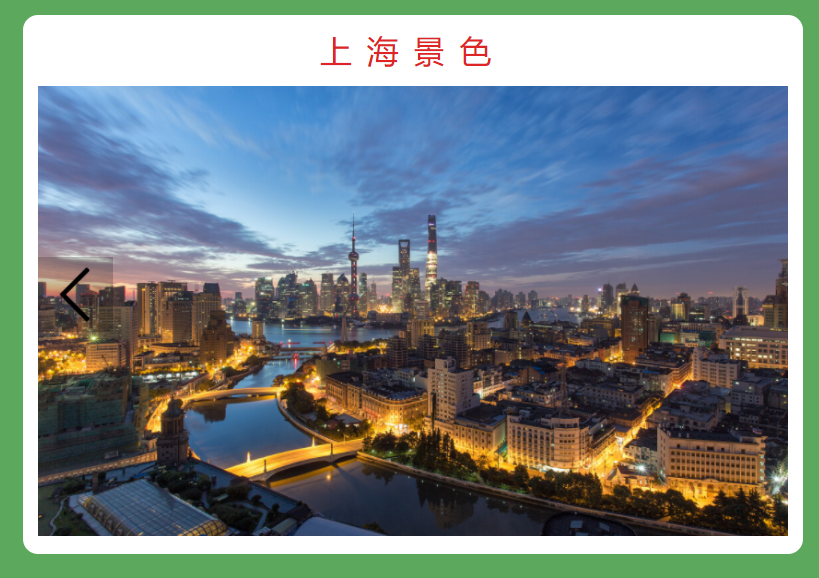1、样式部分(.css)
<style>
*{
margin: 0;
padding: 0;
}
a,li{
text-decoration: none;
list-style-type: none;
}
#app{
padding-top: 50px;
width: 100%;
height: 1000px;
background-color: rgb(92, 168, 92);
}
h2{
margin-bottom: 10px;
font-size: 21px;
font-weight: 400;
letter-spacing: 10px;
text-align: center;
color: rgb(222, 36, 36);
}
.div{
padding: 10px;
margin: auto;
width: 500px;
height: 339px;
background-color: white;
border: none;
border-radius: 10px;
}
.logo{
width:500px;
height: 300px;
}
.zjt,
.yjt{
width: 50px;
height: 50px;
position: relative;
top: -190px;
background-color: rgba(0, 0, 0, 0.2);
}
.zjt:hover,
.yjt:hover{
background-color: rgba(0, 0, 0, 0.1);
}
.zjt{
float: left;
}
.yjt{
float: right;
}
</style>2、.HTML+.JS
<div id="app">
<div class="div">
<!-- 标题 -->
<h2>上海景色</h2>
<!--通过改变图片的src来切换图片-->
<img class="logo" v-bind:src="imgArr[index]">
<!-- 左箭头 -->
<a href="#" class="zjtclass" >
<!--
v-show="index!=0"
index不等于0的话,v-show的值为true,左箭头显示(非第一张图片)
index等于0的话,v-show的值为false,左箭头不显示(也就是第一种图片)
-->
<img class="zjt" v-on:click="jian" v-show="index!=0" src="./VUE需要的各种图片/左箭头.png" alt="">
</a>
<!-- 右箭头 -->
<a href="#" class="yjtclass" >
<!--
v-show="index<imgArr.length-1"
index小于4的话v-show的值为true,右箭头显示(非最后一张图片)
index等于4的话v-show的值为false,右箭头不显示(也就是末尾图片)
-->
<img class="yjt" v-on:click="jia" v-show="index<imgArr.length-1" src="./VUE需要的各种图片/右箭头.png" alt="">
</a>
</div>
</div>
<script src="../Vuejs/vue.js"></script>
<script>
new Vue({
el:"#app",
data:{
imgArr:[
"../Vue标签/VUE需要的各种图片/0.png" ,//索引0
"../Vue标签/VUE需要的各种图片/1.png" ,//索引1
"../Vue标签/VUE需要的各种图片/2.png" ,//索引2
"../Vue标签/VUE需要的各种图片/3.png" ,//索引3
"../Vue标签/VUE需要的各种图片/4.png" //索引4
],
index:0
},
methods:{
// 索引减
jian:function(){
this.index--;
},
// 索引加
jia:function(){
this.index++;
},
}
})
</script>3、结果如图所示
第一张图片左边箭头隐藏右边箭头显示
末尾张图片左边箭头显示右边箭头隐藏
中间各图片左右箭头都有显示



版权声明:本文为weixin_45718431原创文章,遵循 CC 4.0 BY-SA 版权协议,转载请附上原文出处链接和本声明。